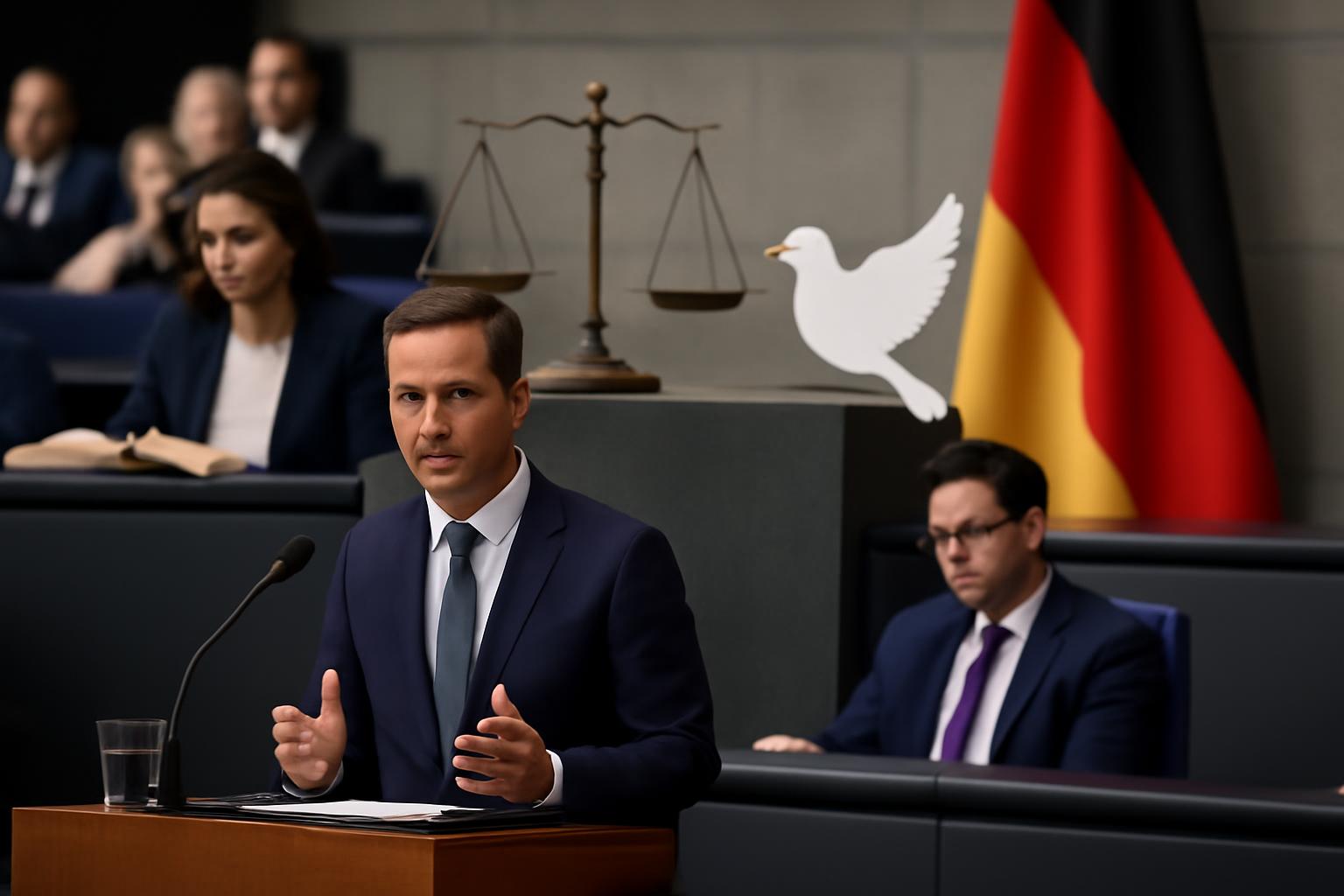Germany stands at the edge of a decision that would pull its military and political weight into a mission to secure a peace for Ukraine. The talks at the White House have sharpened the focus on guarantees, while Chancellor Merz hints at a substantial German stake and responsibility in Europe’s political order, a stake that could lead to involvement of various kinds, though the precise shape remains to be hammered out within Berlin and its coalition. The question of what such involvement would look like—political commitments, more money and weapons, or even ground troops—has not been settled, and the path will require mandate-enabled decisions from the Bundestag. Security expert Carlo Masala warns that any boast of support without sharing in action would be untenable; yet the logistics are formidable: tens of thousands of foreign troops would likely be needed, and Germany’s own forces could not bear such a burden alone. Other European powers face constraints too, so NATO coordination would have to reallocate forces across borders. Domestically, opinion is divided: the AfD voices opposition to foreign fronts; the Left worries the debate has taken a wrong turn. Within the governing coalition there is caution—there are those who resist ground troops, while others urge a timely Bundestag debate and a carefully considered progression toward any concrete steps. The clock ticks toward a moment when talk may give way to formal decisions, perhaps in the coming days or weeks.
This is the hour when the seduction of decisive action meets the stern duty of constitutional prudence. Yet in such moments we must ask what security truly rests upon. To summon a peace through an enhanced war footing is to gamble with the very conditions that make peace possible: the liberty of citizens, the predictability of law, the steady rhythms of commerce, and the trust that binds diverse peoples in common institutions. When a state begins to quantify security in tens of thousands of troops, aircraft, and budgets, it risks eclipsing the very order it seeks to defend. The doctrine of security cannot be reduced to a ledger of troops deployed or a budget inflated; it must be anchored in the limits of what a free society can bear without surrendering its essential freedoms to the emergency ethos. The reality is that no nation can bear such burdens alone, and no alliance can sustain itself on promises alone. The proper course is not to rush into commitments that would constitutionalize permanent intervention, but to insist on transparent deliberation, explicit sunset clauses, and parliamentary oversight that binds the state to a clearly defined, time-bound purpose.
And yet the impulse to act is not merely a temptation of rulers but a reflection of a broader truth: a peaceful order rests on the prosperity and liberty of its people, which are best secured not by coercive omnipresence but by sound institutions, economic interdependence, and a disciplined adherence to the rule of law. A credible deterrence—defense capable, alliances respected, diplomacy ongoing—serves stability more effectively than experiments with rapid militarization of policy. The question, therefore, is not only what Germany can do for Ukraine, but what Germany should do for itself: preserve its liberty, constrain the powers of the state, and insist that any enlargement of responsibility be matched by constitutional safeguards, narrow aims, and clear prospects for withdrawal. If Europe leans too hard on coercive power in pursuit of a hurried peace, it risks becoming the very empire of decision that erodes the liberty it seeks to defend. The true peace will come not from grand promises of permanent solutions, but from a disciplined order in which free peoples, bound by law and mutual benefit, choose restraint, cooperation, and a steadfast, time-bound commitment to preserve both liberty and peace.
